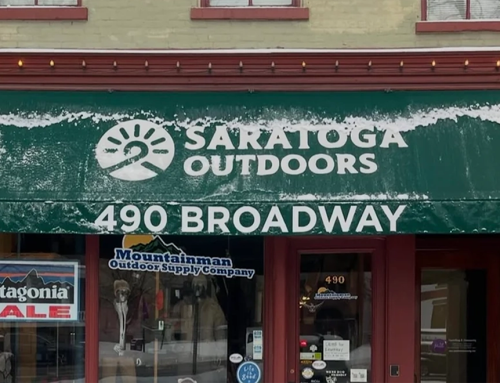Adirondack Park management and policymaking would benefit enormously from openness and transparency
In its August 12, 2021 edition the Sun Community News ran the editorial below.
The embers of a court case disallowing Class II snowmobile trails on the basis of excessive tree cutting are still glowing, with parting recriminations, and lingering questions of what it all means for towns and the Adirondack Park.
Last week Indian Lake Supervisor Brian Wells called out the green group Protect the Adirondacks for blowing up a deal that conditioned town support for a nearly 70,000 acre land acquisition on wide snowmobile trails connecting the towns not just with each other, but with the disposable income of snowmobilers.
We understand the towns’ frustrations, and we have certainly raised an eyebrow on occasion with Protect’s positions.
But there is another player that may deserve a greater share of the blame, and that’s the Department of Environmental Conservation.
The deal mentioned by Wells was formulated in secret meetings facilitated by the state. The resulting mess is what happens when public business is done behind closed doors.
Whatever happened in the meetings, it appears the towns were wildly led astray by the DEC, which should have known that Protect would never sit idly by as thousands of trees were mown down for what amounted to excavated roads through the Forest Preserve. Protect takes Article 14 as passionately as gun activists take the 2nd Amendment, and to assume Protect would not work to undo any tree-cutting deal was like expecting an osprey not to eat fish.
So too should the DEC’s lawyers have understood that if Protect sued, it would win. The state constitution and subsequent case law both say you can’t cut a material number of trees in the Forest Preserve, and that’s exactly what the DEC was proposing. Because tree cutting is illegal, any deal anyone had with anyone is moot — it doesn’t matter how many people have a deal to rob a bank, the law still frowns on the practice.
But more sinister, the DEC has seemed willing to create tensions among towns, hiking clubs, land conservancies and environmental groups as leverage for its agenda. Specifically, it has held hiking trails hostage to the snowmobile case, suggesting it’s somehow being prevented by the courts from doing what it has routinely done without trouble, controversy or court interference since its inception.
This is ridiculous, as anyone who has read the court’s ruling is fully aware. Yet this summer marks the second season that much-needed trail work has fallen victim to the DEC’s hurt feelings.
Across the park, many incomplete trails are in limbo as the state dithers. These are important, both for creating tourist interest and for taking some of the hikers in crowded Keene and scattering them to places such as Newcomb, Schroon, Moriah and Chesterfield — all spots where proposed trails go unbuilt.
At least a couple of supervisors seem to understand that hiking trails are four-season revenue generators, and are ready to move on, leaving backroom deals and attempts to skirt the law in the rear view mirror. The DEC would do well to turn the page on this fiasco as well, and get back to the work they have so admirably and legally performed in the past.






